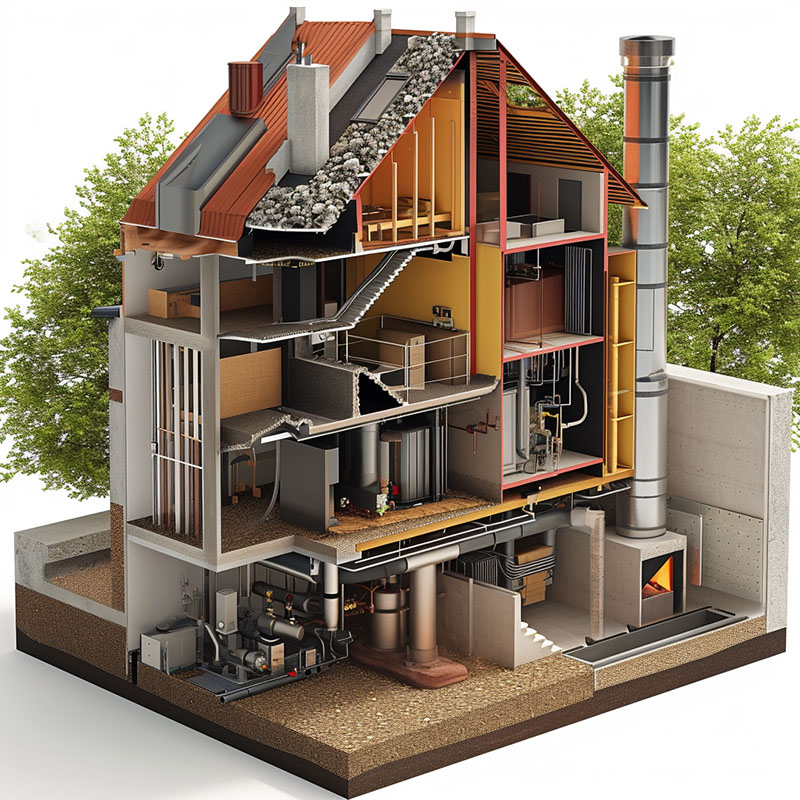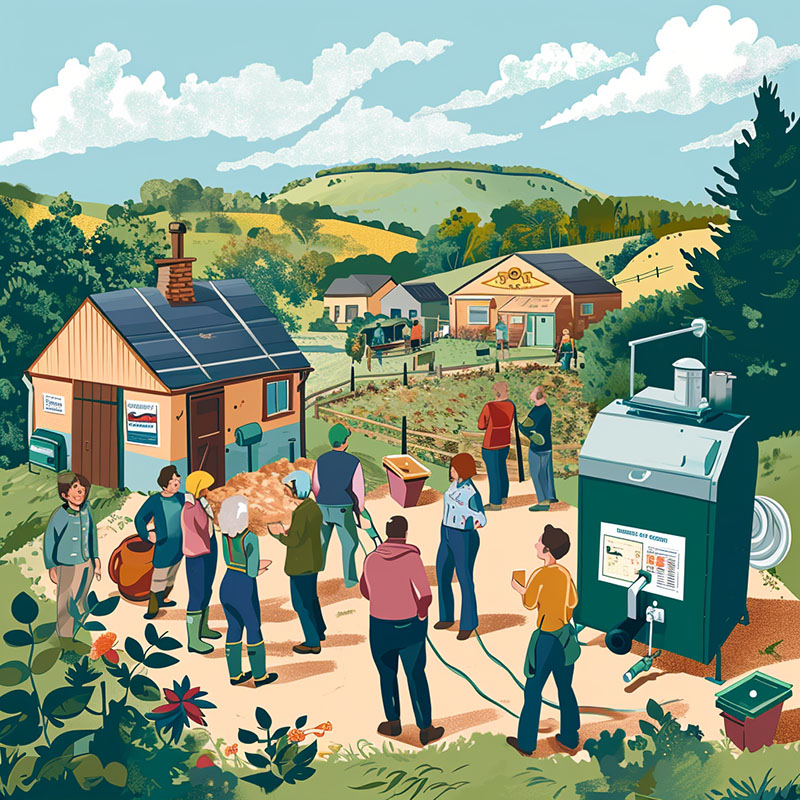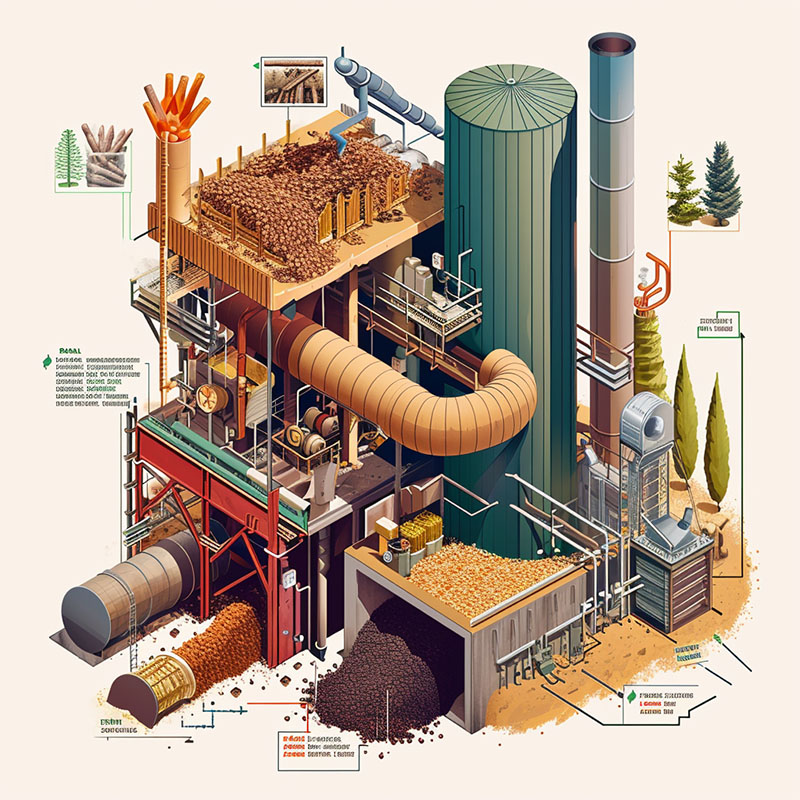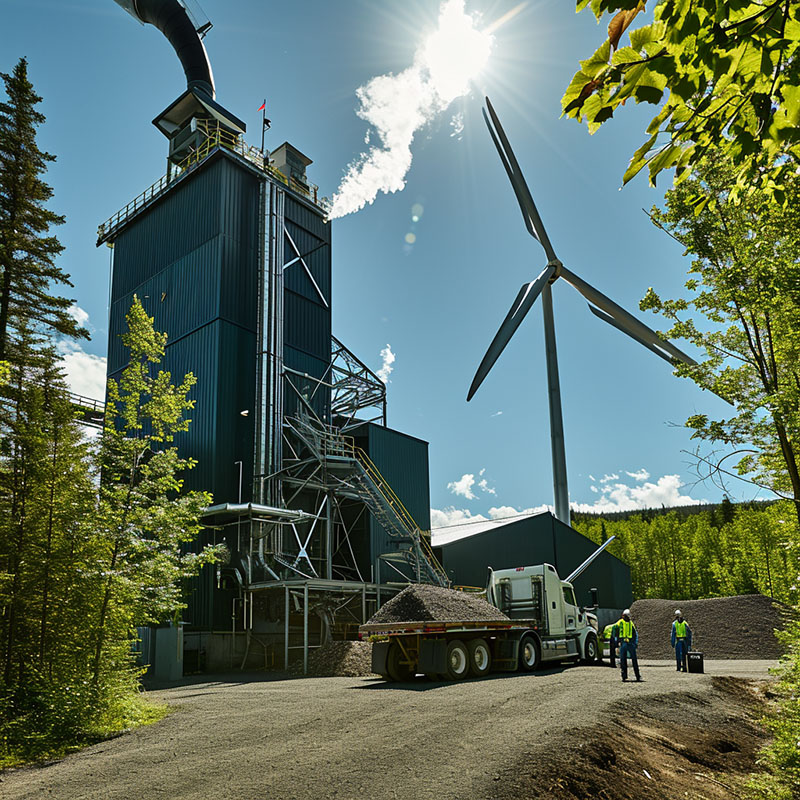
Biomass boilers are an innovative solution to modern heating needs, offering an environmentally friendly alternative to traditional fossil fuel systems. These boilers use organic materials, known as biomass, as fuel to generate heat. Common types of biomass used include wood pellets, chips, logs, and sometimes agricultural residues like straw. Unlike fossil fuels, which release carbon dioxide stored for millions of years, biomass is part of a carbon cycle. The CO2 released during combustion is roughly equal to the amount absorbed by the plants during their growth, rendering biomass a carbon-neutral source of energy. This characteristic makes biomass boilers an appealing option for reducing greenhouse gas emissions and combating climate change.

One significant advantage of biomass boilers is their versatility in application. They can be used in various settings, from residential homes to large-scale industrial facilities. In domestic environments, these boilers provide a sustainable way to heat homes and supply hot water. For larger buildings or industrial applications, biomass boilers are capable of producing a substantial amount of heat, often used in district heating systems or for industrial processes. Moreover, advancements in technology have led to the development of highly efficient biomass boilers that can convert up to 90% of the biomass fuel into heat, making them comparable to traditional gas or oil boilers in terms of efficiency.

The economic implications of biomass boilers are noteworthy, particularly in areas with ample access to biomass materials. For those located near forests or agricultural areas, biomass can be a cost-effective fuel option. Additionally, using local biomass sources supports the local economy and reduces dependency on imported fuels. However, it's important to consider the initial investment cost, which can be higher than traditional heating systems. Nevertheless, government incentives, like grants or subsidies for renewable energy installations, can help offset these initial costs and make biomass boilers a more attractive financial proposition.

Operational aspects of biomass boilers also merit consideration. They require more space than conventional boilers for the boiler itself as well as for storing the biomass fuel. Regular maintenance is crucial to ensure efficient operation, including cleaning the boiler and removing ash buildup. The fuel quality, particularly its moisture content, plays a significant role in the efficiency of the boiler. High-quality, low-moisture biomass fuels burn more efficiently and produce less ash. Additionally, advancements in automated feed systems have made operating these boilers more convenient, as they can automatically load biomass into the combustion chamber, reducing manual labor.

From an environmental perspective, biomass boilers offer significant benefits but also pose some challenges. They contribute to a reduction in greenhouse gas emissions and can help meet renewable energy targets. However, it's crucial to source biomass sustainably to avoid negative impacts on forests and biodiversity. The combustion process can also emit particulate matter and other pollutants, although this can be mitigated with advanced filtration systems. As the world moves towards a more sustainable energy future, biomass boilers represent a viable and eco-friendly heating solution, provided they are used responsibly and in conjunction with other renewable energy sources.
Announced November 11, 2009, Fagen has reached an agreement with Southern Power for engineering, procurement, and construction of the Nacogdoches Generating Facility in Sacul, Texas, the largest single boiler biomass project in the United States. Southern Power acquired the project from American Renewables on October 9, 2009 and is now moving ahead with construction. When completed in the summer of 2012, the 100-megawatt plant will be the largest single boiler biomass project in the United States. Zachry Engineering Corporation is the design engineer. Zachry Engineering will provide overall site design, balance of plant engineering and design coordination.
Metso Power will provide the engineering, supply, erection, and commissioning of the biomass boiler and distributed control system. The biomass boiler plant will use bubbling fluidized bed (BFB) technology and once operational, will be one of the largest and most efficient biomass boilers in the world. Mitsubishi Power Systems Americas is responsible for the steam turbine. This turbine is specifically designed to be the most efficient and therefore make as much power as possible from the available energy from the biomass. Wolf Material Handling Systems has the responsibility for the design, engineering, supply and commissioning of the Biomass Fuel Handling System. This includes truck receiving, processing, storage, reclaim and delivery of fuel to the boiler.